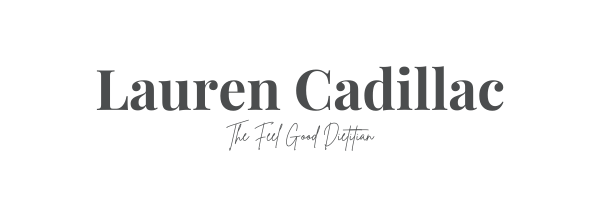What is the Difference Between Hunger and Appetite?
/Honor your Hunger is the second principle of Intuitive Eating. It can often be confusing to people as many argue they will “eat all the time” if they honor their hunger. Some believe honoring their hunger means they can only eat if ravenously hungry. Others are guilty if they have a bite of food just because they aren’t physically hungry. But hunger and appetite are not one and the same. To better understand this, let’s break down what they are.
Hunger is a physiological response signaling the need for food. You might start feeling uncomfortable and or physically weak if the hunger gets intense. Hunger is primarily experienced in the body (low energy, rumbling stomach, shaky, although feelings of irritability may arise).
Appetite is a desire to eat, and is often experienced in the mind (although we can also experience physical sensations such as increase salivation). It often comes on suddenly and can be stimulated by the sight or smell of food. It is possible to be physically hungry and have no appetite. It is also possible to have an appetite, but not be physically hungry (we call this taste hunger in Intuitive Eating). The latter is very common for individuals who have been dieting or restricting for some time. Our desire for certain foods heighten as we make them off limits and restrict our consumption of them.
In the simplest models, the intake of food is stimulated by hunger cues. These hunger cues are initiated by hormones that signal a need for energy to the brain. Then the process of eating takes place and is eventually terminated with satiety or a feeling of fullness. When food is digested, those hormones are lowered and the brain signals that it is time to stop eating.
However, sometimes we eat in response to different cues such as the smell or sight of food. Appetite is a combination of learned eating behavior and genetics. Our environments often shape how we respond to food. Children have the inborn ability to self-regulate their intake of food but once they are exposed to different feeding practices (whether thats a diet, a parent instructing the child to finish their food, restricting intake of ___), they slowly lose this ability and their eating becomes controlled by external rather than internal (hunger cues) factors.
Our eating behavior begins to be shaped from the time we are breast/bottle-fed, and this is where we learn how to respond to our hunger and satiety cues. It is known for example that modifying a child’s internal cues reduces their ability to respond to inborn signals which makes them less of an intuitive eater. The caretaker’s eating behavior and attitudes towards food can also have a significant influence on children’s eating behavior. Unfortunately, as children we are often powerless when it comes to food choices, placing the responsibility on to the caretaker. This is why it’s so important for the adult to have a healthy relationship with food, as these early experiences shape how that child will respond to both hunger and appetite later in life. Essentially, every experience that interferes with our internal signals leads us astray from the intuitive eater within.
An interaction of hunger and appetite satisfaction is needed to achieve a balance in eating. In fact, in Intuitive Eating, we spend an entire principle discussing the importance of satisfaction! Eating is motivated by far more than just hunger. We eat for social reasons, for pleasure, for cultural reasons, or emotional reasons. All of these are valid. The ability to eat for health and pleasure is what makes for an intuitive eater.
The bottom line is that there is a difference between hunger and appetite. However, both are appropriate cues to start eating, as long as you understand how you feel and what your body needs. If we consistently eat only for pleasure with no regard for physical hunger, we may feel sluggish, experience digestive issues or just feel physically uncomfortable. If we consistently eat only in response to physical hunger with no regard for appetite and satisfaction, we miss out on the pleasure we can derive from eating, along with many of the social connections and memories that come from eating.
If you’re ready to start your own Intuitive Eating journey, click here to apply for 1-on-1 coaching.


